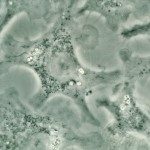Lien vers Pubmed [PMID] – 19638210
Crit Care 2009;13(4):R124
The gut is often considered as the motor of critical illness through bacterial translocation, which amplifies the inflammatory response and alters the immune status. However, systemic bacterial translocation was rarely proven and endotoxin measurement only reflects translocation of Gram-negative-derived products. The process could be more frequently identified if peptidoglycan, derived from both Gram-negative and Gram-positive bacteria, was measured.

